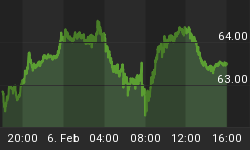G-20 meeting and Surplus limits
Gold dropped too $1,314.5 before recovering to $1.325. It seems that this was due to the G-20 proposals from the U.S. indicating a possible attempt at calming currency markets. This weekend the G-20 is meeting to discuss the current currency turmoil in the markets. Usually this is a meeting where little happens, but this time the U.S. has proposed that countries in the Group of 20 limit current-account surpluses or deficits to no more than 4% of each nation's gross domestic product by 2015. It met opposition from Japan and some developing economies. Diplomatically Japan said, "We said that we doubt whether rigid numerical targets should be set, but when checking the progress in rectifying imbalances, that might be an idea." This is a suggestion that will directly benefit the U.S. if it means that emerging nations accept that their exchange rates will rise even more. We doubt that that will be acceptable unless Capital Controls are imposed by countries whose exchange rate is already hurting. If they are imposed these will change capital flows significantly. But they would have to be draconian to succeed!
Why?
The U.S. wants China to raise its exchange rate to achieve this. China won't [it has $2.5+ trillion in its reserves] nor will other countries. The U.S. will have to lead the way if it wants this story to fly. Everybody knows the U.S. does not need to take action to lower its exchange rate for its Balance of Payments structure will naturally take the dollar exchange rate lower. Many emerging and developed nations are suffering under a dollar that is about to be printed in another burst of quantitative easing shortly. A huge number of these dollars will be sold on foreign exchanges and push surplus currency exchange rates to new highs. The problem lies with the dollar, primarily, as all know [China is trying to diversify out of the dollar as fast as possible]. But something has to be done or currency chaos lies ahead.
Can limits be placed on surpluses or deficits?
As we have seen for several decades now, the U.S. runs a persistent Trade deficit. The U.S. government is not in a position to alter the economy structurally to change this state of affairs. In fact, the only action it can take to change the situation quickly is to impose controls on capital not commercial flows of currency, or to legislate protectionism. Slapping duties on foreign imports is an example of protectionism in the form of Capital outflow controls. With the U.S. the world's most powerful economy protectionism would have a revolutionary impact on the U.S. and globaleconomy. So we do not expect that action.
Capital and Exchange Controls on Inflows into a country
This leaves us with the U.S. giving the nod to foreign surplus nations imposing Capital Controls, such as we have seen in Brazil where a 6% tax is levied on 'hot' money trying to buy Brazilian government bonds. This leaves trade flows alone and targets capital flows. The splitting of capital flows from trade flows is the traditional way that governments take, ahead of exchangecontrols, which are a wider and more draconian form of control on capital flows.
The intention of these controls is to correct a Balance of Payments surplus. They reduce foreign demand for domestic assets without expansionary monetary policy or a revaluation. Further, it allows a lower rate of inflation.
But when the capital flows take on the appearance of a tsunami of capital, governments can be forced to enforce a premium on the cost of their currency sufficient to discourage inflows. This in the most dramatic of takes the form of a high percentage [up to 30% or thereabouts] premium that can be paid to those taking capital from a country [e.g. the Financial and commercial currencies in Belgium and Britain in the 1970s.].
A huge benefit to such a scheme is that when the day arrives that the 'hot' money's home country raises interest rates to deter the 'carry' trade sending such money abroad, capital floods out of the host country faster than it came in. In the process it wreaks havoc on the host country's economy and its exchange rate. Under such a system, the host country will not suffer damage but will ensure 'carry traders' pay a high penalty for their actions. Meanwhile international trade flows go in and out through a stable Balance of Payments related commercial currency. These controls appear overnight catching 'carry traders' off guard completely.
Consequences of Capital & Exchange Controls
Such controls bring international capital flows under the control of nations imposing such controls. Banks sponsoring the 'carry trade don't like this and remember it for a long time afterwards. Controls like these affect direct foreign investment into the country. Most emerging countries just can't afford to deter such foreign investment.
Major nations like the U.S. can't afford to have a nation like China say it will no longer buy Treasuries and will sell their dollars until they are out of that country's reserves. That would be disaster for the dollar.
If such controls are applied across the globe, capital flows would be harmed for years. The global economy would then find good reasons for adjusting trade related exchange rates to facilitate international trade. Competitive devaluations would become common practices creating currency chaos after all.
Longer term, broad, capital controls would be a disaster. We can only hope that the G-20 does not walk this road under any guise.
As for precious metals in such an environment, their status as reserve assets would be enhanced extraordinarily. What would this mean for them? Subscribers only - Subscribe through www.GoldForecaster.com















